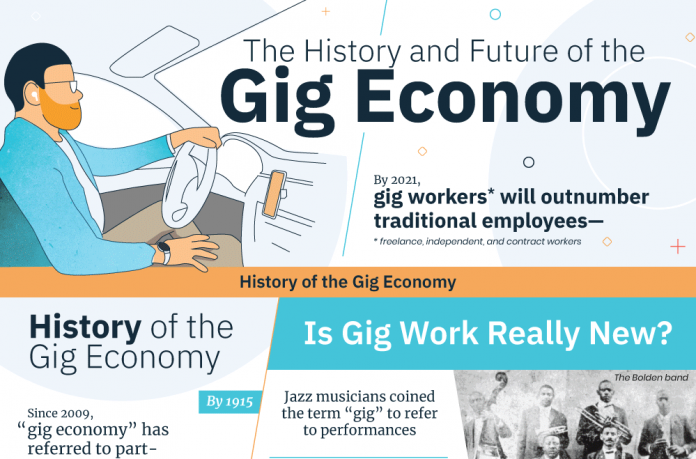In recent years, the gig economy has grown to the extent that it now employs an estimated 34% of the U.S. workforce. Our reliance on gig workers was highlighted by the COVID-19 pandemic as many aspects of the traditional economy shut down. Consumers continue to rely on these services even as economies reopen, with food delivery usage and spending both still up over 50%, according to Envestnet-Yodlee’s COVID-19 Income and Spending Trends data. However, while we need these workers, their financial needs are not being met.
Opportunities in the gig economy attract many unemployed and underemployed workers, but access to credit remains a significant hurdle for them, with traditional credit scores reliant on traditional employment. Many of these individuals fall into the category of credit builders, who are focused on seeking opportunities to raise their traditional scores. By using alternative data points alongside traditional credit scores, financial service providers can best serve our increasingly individualized, diverse, and modern economy.
Why are gig workers credit invisible?
According to a recent survey by the Federal Deposit Insurance Corporation (FDIC), over one in 20 U.S. households, or a total 14.1 million American adults, are unbanked. Many gig workers are described as “underbanked” or “credit invisible” because they have little or no traditional credit history. While reported income helps these consumers, accurate income can be difficult to obtain. This has led to hesitancy on the part of lenders, who were less likely to take on potential increased risk by lending to this demographic. In some cases, platforms that rely on gig workers are filling the gap for the underbanked by offering loans and credit opportunities to their de-facto workforce.
Fortunately, additional data points, such as a consumers’ ability to pay utility or mobile phone bills, combined with traditional credit scores can augment an individual’s creditworthiness and ability to pay back a loan. This process can allow for increased access to credit for those who support the gig economy. While traditional credit reports remain a strong indicator of credit history and past financial reliability, the pandemic demonstrated a need for increased focus on credit maintenance and the use of alternative data to enhance credit scoring models. Alternative data has the potential to help responsibly expand consumer access to credit opportunities and support a more inclusive economy.
The future of credit
The way we see traditional credit reports today is reflective of a system that was created prior to many developments in consumer-focused technology innovation. Having clear bank transaction data allows lenders to understand how often consumers spend and earn income, which clarifies assets available to pay bills. But in some cases, a traditional credit score is no longer a full representation of a borrower’s ability to pay back a loan. Additional data, especially non-conventional data, will best align with our modern economy. The ideal solution needs to combine traditional credit reports with insightful data on assets, income, and payment of non-credit recurring expenses. This is where technology provides a bridge to greater financial opportunity, with the ability to verify the income of workers with sporadic, nontraditional forms of work.
As the gig economy continues to grow in a post-COVID world, the financial services sector needs to do more. Banks need to consider using alternative data as part of risk assessments. By taking everything into consideration, lenders can be more confident in their risk decisions and consumers can be more empowered in their financial journeys. And by leveraging all of the information already at the financial industry’s fingertips, we can paint a clearer picture of everyone’s financial status.
Brandon Rembe is the chief product officer at Envestnet | Yodlee. He has over 18 years of experience building high-growth technology, software, and information service companies.




















